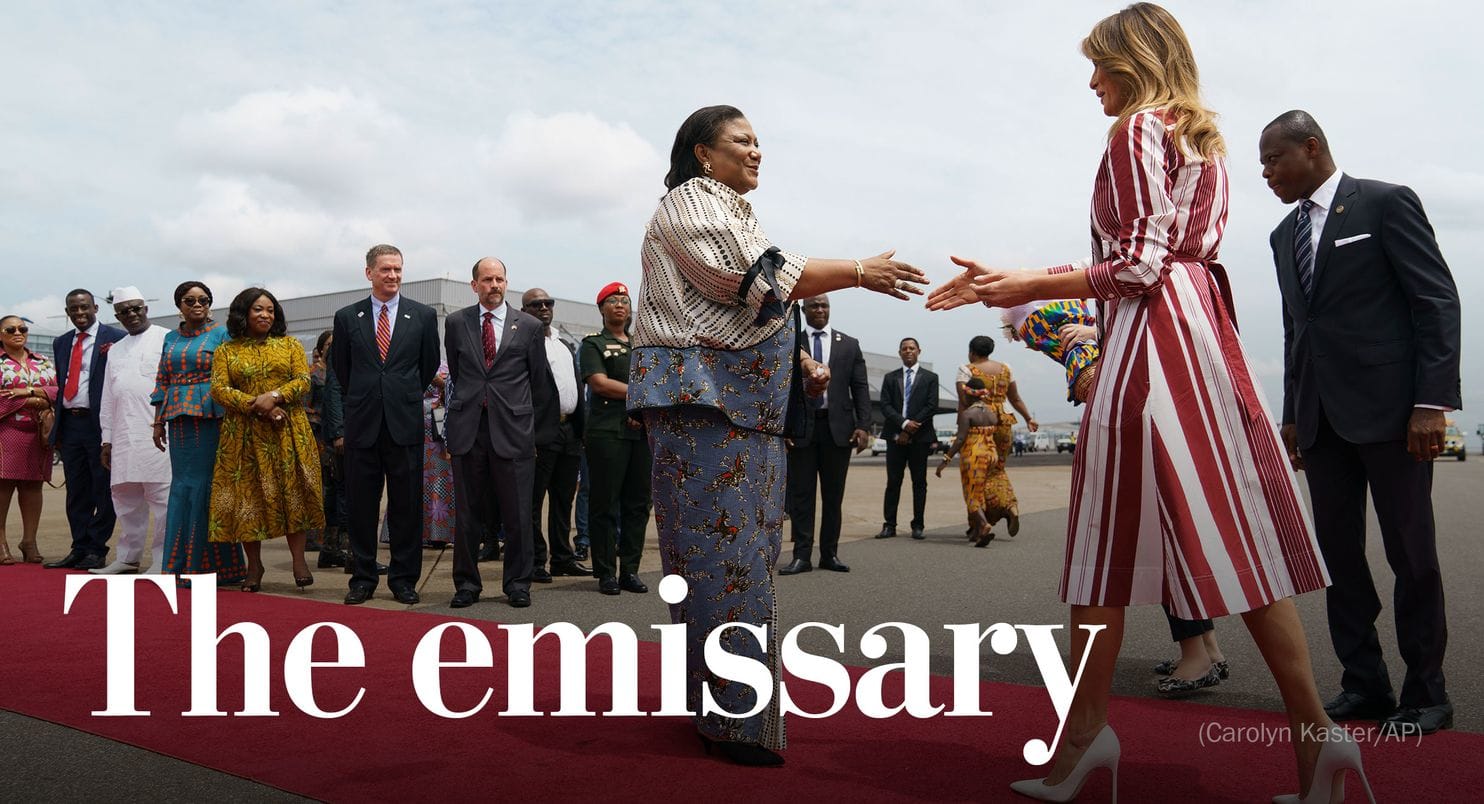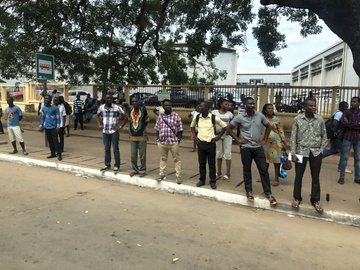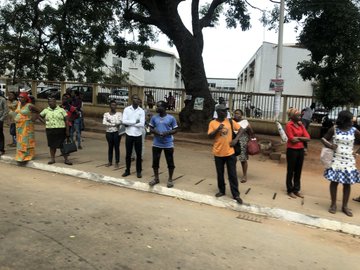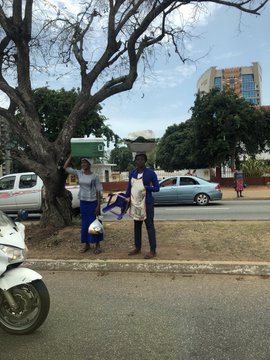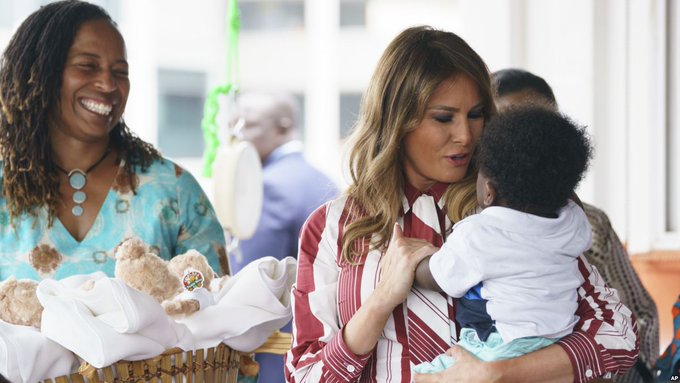Melania carries Trump’s baggage in Africa
Plenty of American presidents have made official visits to African nations. Barack Obama stopped in Egypt and Ghana during in his first year as president and later took two longer trips to the continent. His predecessor, George W. Bush, made two major trips to Africa.
While President Trump has yet to follow them, his wife, Melania Trump, is in Africa this week on her own four-country tour. It’s Mrs. Trump’s first solo international trip as first lady, and one she reportedly planned herself. “She is eager to educate herself about each country — history, culture, challenges, successes,” her communications director, Stephanie Grisham, told The Washington Post.
In doing so, she is following in the footsteps of other first ladies who made similar trips. But she is bringing an unusual amount of her husband’s baggage — in the form of both ugly remarks and unclear policy — with her.
Mrs. Trump arrived in Ghana on Tuesday morning and toured a hospital in the capital of Accra, meeting mothers and newborns. She will continue her journey over the coming days with stops in Malawi, Kenya and Egypt before returning to Washington on Oct. 7
The trip has been relatively low-profile so far, with Mrs. Trump attracting little attention from locals. But assuming there are no fashion faux pas on the trip (a genuine worry after she wore a jacket that read “I REALLY DON’T CARE, DO U?” during a June visit to a shelter for migrant children in Texas), Mrs. Trump may be able to present a positive image of the Trump presidency to the continent.
That’s something her husband has not done much of so far. Though he has embraced Egypt’s strongman president, Abdel Fatah al-Sissi, and welcomed the leaders of Nigeria and Kenya to the White House, Trump has long seemed disinterested in the vast majority of African countries and issues. The appointments of key diplomats dealing with Africa have been delayed, and Chad, a U.S. anti-terrorism partner, inexplicably appeared in one iteration of the administration’s controversial travel ban (it was later removed).
Some comments attributed to Trump suggest something closer to disdain. Even before he was president, Trump had a history of spreading misinformation and panic that related to Africa. He repeatedly suggested that Obama was born in Kenya, even long after that theory was debunked, and argued that the United States should cancel all flights from West Africa during the 2014 Ebola outbreak.
First lady Melania Trump arrived Oct. 2 in Accra, Ghana, the first stop in her four-country Africa tour. The visit is her first solo trip abroad as first lady.
After he entered office, Trump also labeled a number of African nations, along with Haiti and El Salvador, as “shithole countries” the United States wouldn’t want immigrants from, according to The Post. The president has denied using that term, but his public comments have still painted the entire continent as a land of despair.
“If you saw some of the things that I see through intelligence — what’s going on in Africa — it is so sad, it is so vicious and violent,” he said in July while at a NATO meeting in Brussels. Meanwhile, the first time Trump tweeted the word “Africa” as president was after Fox News aired a sensational segment about the supposed oppression of white farmers in South Africa.
Mrs. Trump’s visit to Africa struck some as a cynical attempt to distract from her husband’s other problems. “This White House is in desperate need of another story line,” Kate Andersen Brower, the author of a book about first ladies, said to the New York Times. As Laura Seay, a political scientist at Colby College, joked on Twitter, the first lady’s first day in Africa seemed to be working off a checklist of boilerplate Africa photo-ops.
But the first lady may also end up underscoring the Trump administration’s Africa policies — though not necessarily for the better.
For example, Mrs. Trump is expected to tour an elephant-and-rhino conservatory — a location seemingly at odds with the Trump administration’s decision to loosen regulations on trophy hunting. She is being accompanied by Mark Green, the head of the U.S. Agency for International Development; the Trump administration has sought to slash USAID’s funding by as much as 30 percent, or even get rid of the agency altogether.
USAID is also at the center of a debate within the administration about whether the United States should give foreign aid to supposedly “disloyal” countries. As The Post’s John Hudson and Josh Dawsey recently reported, among the ideas was that countries with strong financial ties to China would have their aid cut. That would likely include many nations in sub-Saharan Africa, where China has dramatically ramped up its investment in recent years.
Despite all this, some observers have suggested that Trump’s Africa policy is ultimately a continuation of his predecessors’. “The Trump Administration is following the historic, bipartisan U.S. policy toward Africa that emphasizes economic development and downplays big power politics,” Herman J. Cohen, an assistant secretary of state for African affairs under President George H.W. Bush, wrote earlier this year.
But Trump’s actual Africa policy seems to still be emerging. And for now, rather than making his own journey to cement his legacy there, the president’s record means he may prefer to keep sending his wife instead.

